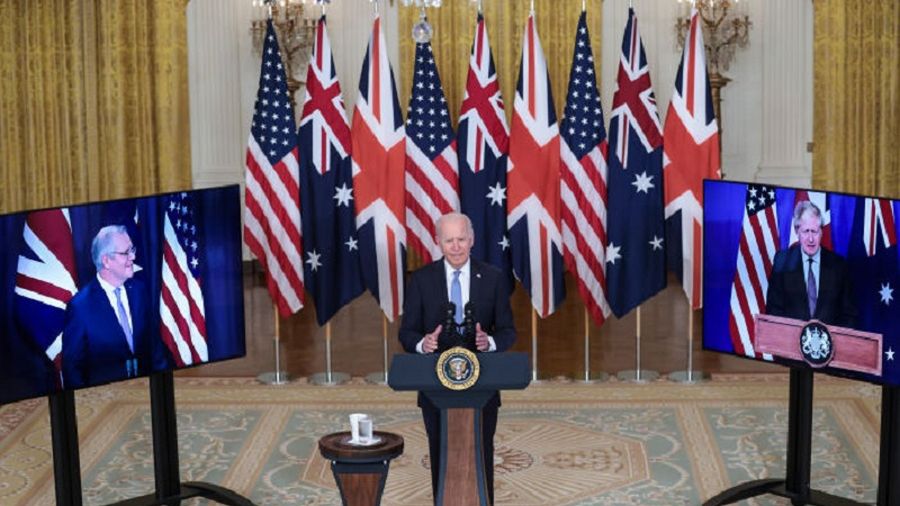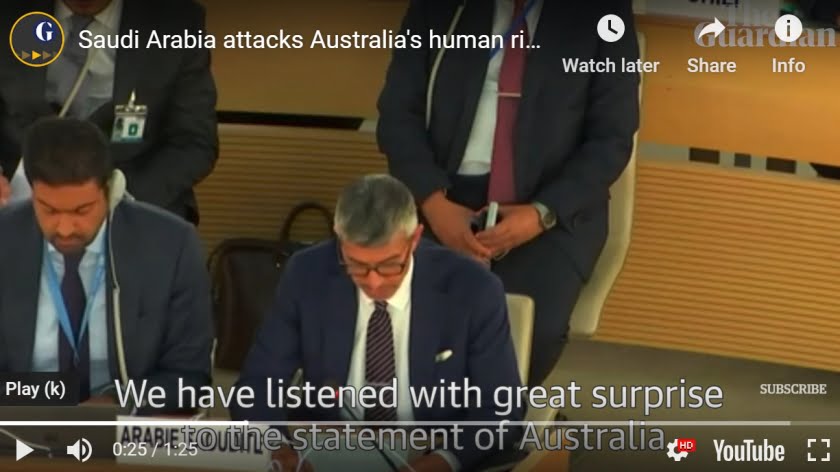Boris Johnson and the “Arc of Nuclear Crisis” against China
Shakespeare, through the mouth of a frightened Henry IV, expresses the fear and impotence of man due to the absence of certainties in the face of the chaos of the move: “My God, if we had the option of reading in the book of destiny and seeing the time the revolutions, to see how the occasion mocks and how the change fills the moving cup with different colors ”.
By chaos (Khaos or “emptiness that occupies a hole in nothingness”) we understand something unpredictable and that escapes the myopic vision that only our eyes can outline before events that escape the known parameters because our mind is capable of sequencing only fragments of the total sequence of the immense genome of chaos, with which we inevitably resort to the term “butterfly effect” to try to explain the dizzying conjunction of centripetal and centrifugal forces that must configure the unconnected puzzle of orderly chaos that is being developed. The aforementioned “butterfly effect” transferred to complex systems such as Demoscopy would have as a collateral effect the impossibility of detecting a mediate future in advance, since the quantum models they use would be only simulations based on previous models, with which the inclusion of only one Incorrect variable or the sudden appearance of an unforeseen variable causes the margin of error of these models to be amplified in each simulated unit of time until it even exceeds the stratospheric limit of one hundred percent, of which Brexit would be a paradigm.
Boris Johnson and the Commonwealt
The conservatives led by David Cameron and faithful to their Eurosceptic policy (no British will to embark on a declining project in which British sovereignty would be subject to the mandates of Brussels), included in their electoral program of 2015 the call of a referendum on the exit of the EU that culminated in the abrupt exit of Great Britain from the European Union, following the philosophy of Winston Churchill: “We are in Europe, but not in it”. In the British case, the energy crisis that plagues the world would be aggravated by the collateral effects of the exit from Brexit in the form of shortages of food and gasoline due to the absence of the European workforce that worked in the agricultural and transport sectors of merchandise, which would have resulted in empty shelves and closed gas stations that will be aggravated in the Christmas season and that could cause social unrest.
Given the difficult domestic situation, Boris Jhonson will turn to foreign policy and take an activist approach, with the increase in the specific weight of Great Britain in World Geopolitics being the backbone of his foreign policy. Johnson’s unequivocal goal would be for foreign policy to serve as a catalyst for the values of Great Britain and its imperial past in the belief that the UK does not need Europe and could become the Singapore of the West from its financial vantage point of the City of London at the same time as the metropolis of overseas commerce by piloting the flagship of a reborn Commonwealt, whose first step would be the irruption of the AUKUS on the geopolitical scene.
Arc of nuclear crisis against China
The strategic agreement between Australia, the United Kingdom and the United States known as AUKUS would symbolize a change in the world geopolitical cartography by displacing the Atlantic scene through the Indo-Pacific as the epicenter of the geopolitical pulse between the United States and China with the aim of establishing an arc of nuclear crisis around China that would span from Indian Kashmir to Japan, passing through South Korea and the Philippines and closing the arc with New Zealand and Australia to dissuade China from its adventure of dominating the China Sea, condemning the allies to ostracism. Europeans. Thus, this agreement involves the sale of North American nuclear-powered submarines to Australia, as well as an economic fiasco for France estimated at 50,000 million Euros that could cause the European Union to disaffect the former American partner and result in the provisional departure of France. of the military structures of NATO (emulating De Gaulle 1966).
On the other hand, we witness some surprising statements by the former British Foreign Minister, Philip Hammond collected by the newspaper “The Telegrah” in which he affirms that “London could host US nuclear missiles on British soil amid tensions with Russia”, what could be understood as the return to an arms race like the one maintained during the Cold War with the USSR (reviving the Partnership project between the USA and Europe to supply the United Kingdom with Polaris missiles of July 1962). Thus, according to The Guardian, Jhonson would have the intention of expanding his nuclear arsenal from the current 180 warheads to 260, which would imply the breaking of the Nuclear Non-Proliferation Treaty (NPT).
On the other hand, we witness some surprising statements by the former British Foreign Minister, Philip Hammond collected by the newspaper “The Telegrah” in which he affirms that “London could host US nuclear missiles on British soil amid tensions with Russia”, what could be understood as the return to an arms race like the one maintained during the Cold War with the USSR (reviving the Partnership project between the USA and Europe to supply the United Kingdom with Polaris missiles of July 1962). Thus, according to “The Guardian”, Jhonson would have the intention of expanding his nuclear arsenal from the current 180 warheads to 260, which would imply the breaking of the Nuclear Non-Proliferation Treaty (NPT). For its part, the United States would have planned a nuclear program with a duration of thirty years and a cost of one billion dollars, as well as a system designed to detect cruise missiles in the United States (JLENS), an arms race that, by mimicry, will be extended to geographical space. that extends from Israel to North Korea (including countries such as Iran, Pakistan, India and China), leaving Latin America and the Caribbean free of nuclear weapons after the signing of the Treaty of Tlatelolco (1967) despite the potential risk of presence of British nuclear submarines in the Malvines (Falklands).







